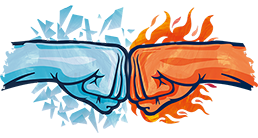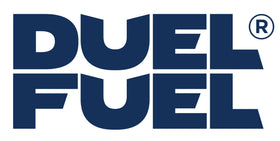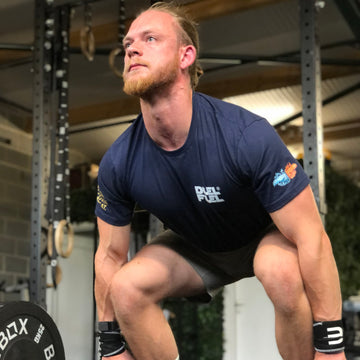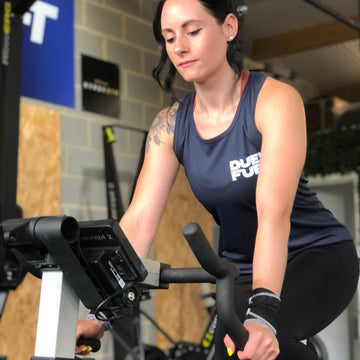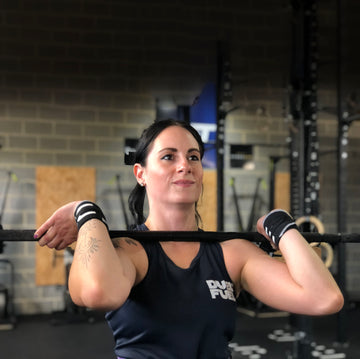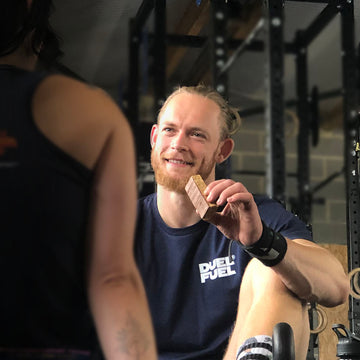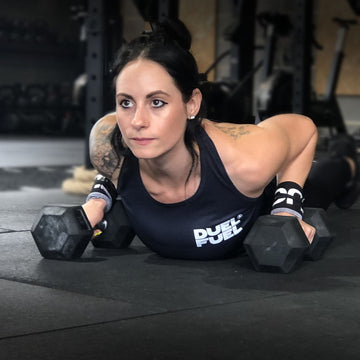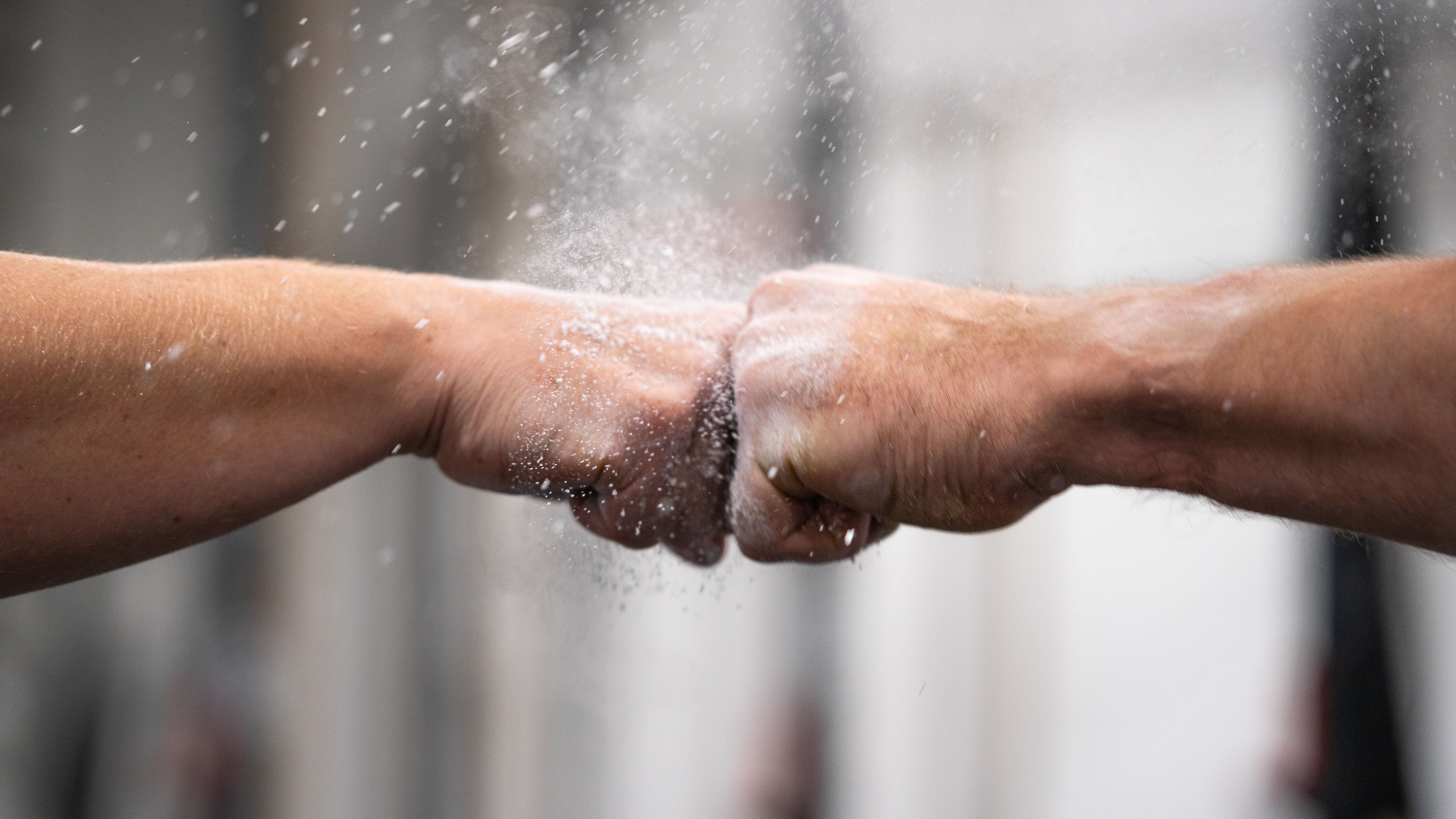Protein: The Recovery Weapon.
"I incorporate a lot of protein into my diet because my muscles need it to repair themselves. If you don't get enough protein, your muscles don't recover properly, and then you'll just be tired and sore." – Dame Kelly Holmes
...But how much protein does a person need?
It’s a good question and certainly one that deserves consideration, not least because of all of the macronutrients, protein is the one that commands a lot of coverage and seems to be at the forefront of our minds.
There’s no doubt about it; including protein as part of a healthy, balanced diet and knowing what protein is, what it does, how much to eat and when to eat it can certainly help support attainment of our exercise and fitness goals.
WHAT IS PROTEIN?
First off, it’s worth saying there isn’t one single “protein”. Proteins are made up of around twenty building blocks called amino acids, all linked together; each with its own specific number and sequence.
The amino acids that make up protein can be arranged in millions of different sequences, with the resulting protein creating a specific shape. The final shape determines the protein’s function.
The amino acids that make up protein are classified as “non-essential”, which can be produced by the body and “essential”, which must be sourced from our diets. The essential amino acids are histidine, isoleucine, lysine, methionine, phenylalanine, threonine, tryptophan, valine and leucine. We’ll be coming back to leucine later on…
WHY IS PROTEIN IMPORTANT AND WHAT DOES IT DO?
Protein is in all our bodies’ living cells and has both structural and functional properties. Approximately fifteen to twenty percent of our total body mass is made up of protein, with half of it present as skeletal muscle. Protein is also an important building block of other tissues, including bone, cartilage and skin.
PROTEIN HELPS US STAY IN SHAPE…LITERALLY.
Some of our bodies’ proteins, such as keratin, collagen and elastin are fibrous and provide structure and rigidity to cells as well as contributing to the connective framework of a number of structures in the body. For example keratin is the protein that provides structure to our skin, hair and nails.
PROTEIN HELPS US REPAIR.
From a structural standpoint, protein literally helps us stay in “shape”, because irrespective of what form the protein takes in our bodies, they are all repaired and replaced continually during our lives, which requires a continuous supply of amino acids.
A good example of this is where protein helps muscle tissues repair after exercise. This is called muscle protein synthesis and is to counter the effects of muscle protein breakdown – which may be one of the things contributing to the aching sensation we experience a day or two after exercise, whereby damage is caused to the muscles when a greater level of resistance is placed on our muscles than they usually experience in our day-to-day routines.
Another example is where protein is involved in repair and synthesis of enzymes for wound healing. Think back to when you skinned your shins on your first box jump…remember the speed at which that nasty badge of honour graze healed? That was all down to your body using the amino acids in the protein and synthesising them for wound healing.
PROTEIN HELPS US FUNCTION.
Our bodies function through thousands of biological processes or chemical reactions, for example digestion, energy production, blood clotting and muscle contraction. Our bodies use enzymes to make these reactions take place and enzymes are made up of…you guessed it, proteins.
PROTEIN HELPS US COMMUNICATE…WITH OURSELVES.
Some proteins also act as hormones; chemicals within the body that act as messengers by travelling throughout the body, where they help control how cells and organs function.
PROTEIN HELPS US STAY BALANCED.
Proteins help regulate the concentrations of acids in our blood and other bodily fluids, for example haemoglobin, a protein in red blood cells binds small amounts of acid, helping to keep the pH value of the blood at the right level.
PROTEIN SUPPORTS OUR IMMUNE SYSTEM.
Protein contributes to the formation of our immune systems’ antibodies, which are deployed to protect the body from external bacteria and viruses.
PROTEIN FEEDS US.
Transport proteins carry substances in our bloodstream to cells and away from cells. For example hemoglobin carries oxygen from the lungs to cells, glucose transporters move glucose to the body’s cells and lipoproteins move cholesterol in the bloodstream.
PROTEIN POWERS US.
Protein and carbohydrates both contain four calories per gram, whereas fat supplies nine calories per gram; however carbohydrates and fats are better for providing energy as the body maintains reserves for use as fuel, both as glycogen and fat deposits.
The body does use protein as an energy source in certain circumstances. For example, when available glycogen stores are low, the body will break down the protein of skeletal muscle and use the amino acids as an energy source.
WHAT ARE GOOD SOURCES OF PROTEIN?
Protein can come from many different sources, both plant and animal. Animal sources include fish, chicken, turkey, beef, yoghurt, and cheese whilst plant sources include beans, nuts, nut butter, tofu, and quinoa.
Animal sources of protein have been reported to be more effective for muscle building than plant proteins. Some research has reported a greater post workout response of muscle protein synthesis when strength-trained young men consumed either skimmed milk or whey protein versus a matched dose of soy protein [1].
Remember the essential amino acids we discussed at the beginning of this protein deep-dive? Of the nine essential amino acids, leucine arises particular interest as it has been identified as a key regulator and driver of muscle growth. It is often suggested that the effectiveness of a protein source is a result of its leucine content, as leucine seems to be significantly effective in stimulating muscle protein synthesis due to a direct effect on signalling pathways in the body.
As a general rule, the leucine content of animal proteins (8-13%) exceeds plant proteins (6-8%). The same applies for essential amino acids content. Plus, animal proteins typically boast a complete profile of all nine essential amino acids, whereas plant proteins are deficient in at least one of the essential amino acids, usually lysine or methionine.
HOW MUCH PROTEIN SHOULD I EAT?
The recommended daily allowance of protein is 0.8g protein, per kilogram of body mass per day; however for those of us keen to maintain and build muscle mass most athletes will consume a higher overall daily protein intake, in the range of 1.4g – 2g per kilogram of body mass per day [2].
IS THERE A “BEST” TIME TO EAT PROTEIN?
Most elite athletes will aim consume protein as part of each meal to promote optimal recovery and growth. This will usually involve consuming 20-40g of protein, equivalent to a medium to large chicken breast, across four to seven feeds per day.
A lot of research has been undertaken to establish whether there is an optimal time to consume protein, however thus far an exact and optimal period of time has not been established. The growth effect of exercise is long-lasting but will diminish over time so consuming protein reasonably soon after exercise is probably key [4].
FIVE COMMON MYTHS ABOUT PROTEIN.
Is It True the More Protein I Eat, the Better?
It’s a myth that the more protein we consume, the bigger our muscles get. A number of studies have demonstrated this, and it is now widely believed that in the region of twenty grams of protein per meal is sufficient for the body to consume after exercise to ensure optimal muscle protein synthesis [2]. Although more is not likely to have negative effectives unless you have specific health conditions it is likely to add little value.
Is Animal Protein Better than Plant Protein?
It depends on how we define “better”. If we define it as being “complete”, i.e. containing all essential and non-essential amino acids, then animal proteins are in general complete protein sources, whereas some plant proteins may lack one or more of the nine essential amino acids.
Does Eating Less Protein Leads to Weight Loss?
Nope. A sustained calorie deficit leads to weight loss but cutting out one macro nutrient will not in itself lead to weight loss. Furthermore, cutting protein out totally from the diet could deprive the body of what it needs to function properly.
If I Don’t Train, Eating Protein Is Pointless
Wrong. Protein isn’t just for gym bros — it’s for everyone who wants their body to perform and recover well. Muscles, immune system, hormones, skin, even your hair all rely on protein. Sure, athletes and active people need more, but even on rest days, your body is still repairing, adapting, and growing stronger. Protein’s a daily essential, not just a “post-workout” add-on.
Protein Makes You “Bulky”
This myth puts a lot of people off, especially women. The truth? Building big, bulky muscle takes years of heavy training and surplus calories — not just eating more protein. Protein on its own won’t make you look like a bodybuilder; what it will do is help you recover faster, stay leaner, and perform better in whatever sport or training you love.
YOUR KEY TAKEAWAYS.
• Protein does more than only contribute to muscle growth; many of the body’s functions rely on protein
• The body gets the nine “essential” amino acids it needs from food
• The essential amino acid leucine is thought to contribute to muscle growth as it stimulates muscle protein synthesis [3]
• There is no one single optimum time to consume protein after exercise
• A number of studies have demonstrated that over twenty grams of protein is ideal for the body to consume after exercise to ensure optimal muscle protein synthesis
References
1. Sarah B Wilkinson, Mark A Tarnopolsky, Maureen J MacDonald, Jay R MacDonald, David Armstrong, Stuart M Phillips, Consumption of fluid skim milk promotes greater muscle protein accretion after resistance exercise than does consumption of an isonitrogenous and isoenergetic soy-protein beverages The American Journal of Clinical Nutrition, Volume 85, Issue 4,2007,Pages 1031-1040,ISSN 0002-9165 https://doi.org/10.1093/ajcn/85.4.1031.
2. Phillips, S. M., & Van Loon, L. J. C. (2011). Dietary protein for athletes: From requirements to optimum adaptation. Journal of Sports Sciences, 29(sup1), S29–S38. https://doi.org/10.1080/02640414.2011.619204
3. Jäger, R., Kerksick, C.M., Campbell, B.I. et al. International Society of Sports Nutrition Position Stand: protein and exercise.J Int Soc Sports Nutr 14, 20 (2017). https://doi.org/10.1186/s12970-017-0177-8
4. Stark M, Lukaszuk J, Prawitz A, Salacinski A. Protein timing and its effects on muscular hypertrophy and strength in individuals engaged in weight-training. J Int Soc Sports Nutr. 2012 Dec 14;9(1):54. https://www.tandfonline.com/doi/full/10.1186/1550-2783-9-54#abstract
